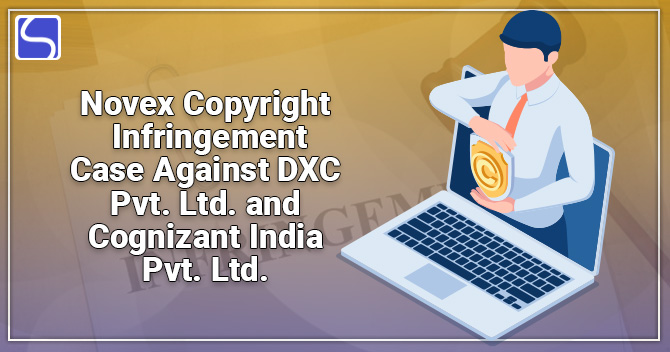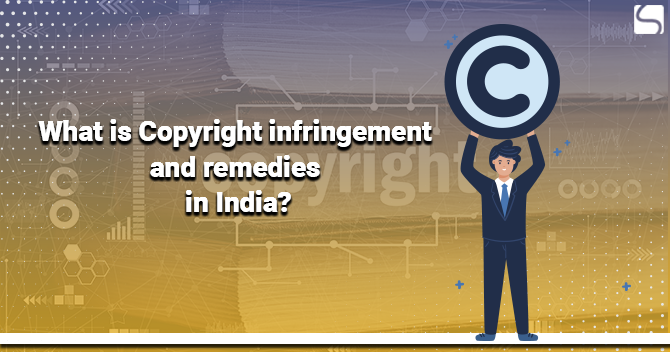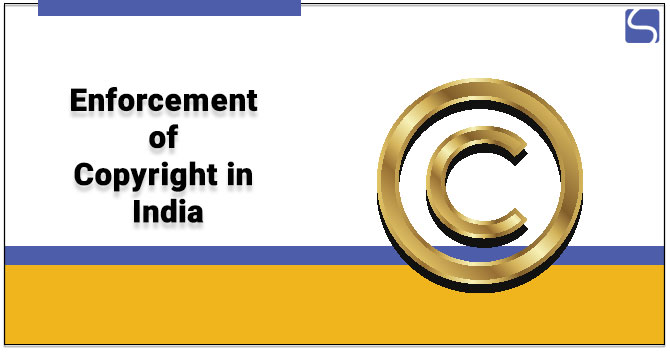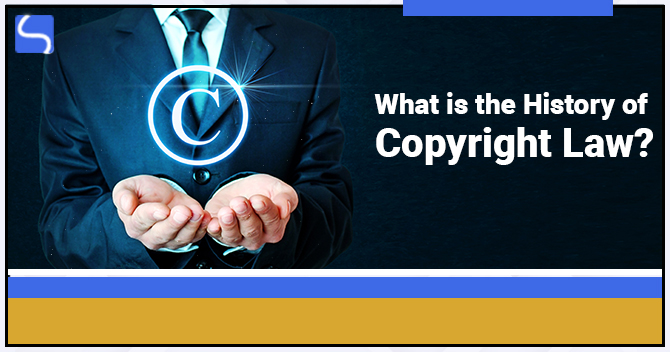Novex Copyright Infringement Case Against DXC Pvt. Ltd. and Cognizant India Pvt. Ltd.

Karan Singh | Updated: Jan 31, 2022 | Category: Copyright
In the matters of Novex Copyright Infringement case against DXC Pvt. Ltd. and Cognizant India Pvt. Ltd., the Learned Single Judge of the Madras Hugh Court passed a judgment on December 08, 2021 (Decision) holding that Novex Communications Pvt. Ltd. is barred from carrying on the business of issuing licenses regarding sound recordings. Scroll down to check more information regarding the Novex Copyright Infringement case.
Table of Contents
Factual Background of Novex Copyright Infringement case
Novex filed lawsuits against DXC Pvt. Ltd. and Cognizant India Pvt. Ltd. (Defendants) for Copyright Infringement concerning Sound Recordings before the Court. Novex claimed it has the right to restrain the defendants from exploiting the recordings without its consent as it’s an owner or duly authorised agent of the on-ground performance rights (Rights) in the Sound Recordings.
The Defendants raised an initial objection that since Novex is not registered as a Copyright Society, it cannot carry on the business of granting licensing regarding Sound Recordings, according to the particular bar under Section 33(1) of the Copyright Act, 1957, as changed from time to time (Act), which inter alia gives that no individual or person shall carry on the business of granting licenses concerning any work in which Copyright subsists. According, the Court framed this as an initial issue for determination.
Novex inter alia contended that it has the exclusive right to restrain that Defendants (DXC Pvt. Ltd. and Cognizant India Pvt. Ltd.) as, either by the ambit of Section 18(2) of Act (which provides or offers that an assignee shall be treated as the rights’ owner so assigned) & the Assignment Agreements entered between Novex and Sound Recordings’ owner. Hence, according to Section 30 of the Act, which allows a Copyright owner either by himself or by their duly authorised agent of the owners of the Sound Recordings is eligible for issuing license and claim royalties from the Sound Recordings’ users.
Moreover, Novex contended that the bar under Section 33(1) of the Act, which provides that a company cannot involve in the licensing business unless it is registered as a Copyright Society, doesn’t apply to Novex in view of 1st proviso to Section 33(1) which carves out an exception allowing Copyright owners to involve in licensing in their individual capacity. Further, Novex contended that according to Section 34 of the Act, joining a Copyright Society is completely optional and that the right to issue licenses cannot be made contingent upon the owner being any Copyright Society’s member. Hence, a complete reading of Section 18(2), 30, 1st proviso to Section 33(1) and Section 34 of the Act makes it evident or clear that Novex has the right to stop or avoid the Defendants from exploiting the Rights in the Sound Recordings without its consent.
In response, the Defendants inter alia contended or argued that:
- The 2nd provision to Section 33(1) of the Act inter alia tells that only a registered Copyright Society can run the business of issuing or granting licenses concerning dramatic, artistic, literary, and musical works incorporated in a sound recording or film. Hence, Novex, not be registered Copyright Society, was barred from carrying on the business of issuing licensing concerning the rights in the Sound Recordings.
- Novex is only the owner of Rights in the Recordings and not the Sound Recordings as a whole, and hence, it cannot take benefit of Section 30 of the Act, which only entitles an owner of a work and no rights in the work issue licenses.
- Defendants relied upon the legislative intent & purpose of Section 33 of the Act, as changed by the 2012 amendment, which according to the Defendants, allows only a registered Copyright Society to involve in the business of issuing licenses.
Findings and Decision – Novex Copyright Infringement Case
The Court broadly relied upon the speeches in the Parliament to collect the true intent and purpose of Section 33, which was to bring party between the different owners in a sound recording. The Court observed or noted that an owner need not essentially join a Copyright Society & that the 1st provision to Section 33(1) makes it clear or evident that the right of an owner to grant the license in their individual capacity is unfettered subject to the rider that such right should be reliable with the obligation as a Copyright Society’s member.
But, once the issue of license moves from the owner of their individual capacity and exceeds into the domain of a business, Section 33(1) and/or the 2nd provision applies. The Court observed that Section 33(1) of the Act mandates a company to be 1st registered as a Copyright Society[1] before it comes into the business of granting the license. On the contention of Norvex that it was allowed to issue licenses as per Section 30 and as per 1st provision to Section 33(1) of the Act, the Court observed or noted that the same applied only to the Copyright’s owners in their individual capacity, and not to a company, like Novex, which is involved in the licensing business. The Court delved into the business word used in Section 33(1) and also observed/noted that this provision clamps or pins a prohibition on the Copyright Licensing business except via Copyright Societies. Further, the Court observed that it was not possible to accede to the contention of Novex as the same would de hor the drives of 2012 amendment made to the Act.
The Courts observed that Section 33 (1) & its 2nd proviso, which specifically provides that the licensing business shall be carried only via a registered Copyright Society, clearly highlights that only Copyright Societies may involve in the business of issuing licenses.
Conclusion
In the view of the Novex Copyright Infringement Case, the Court held that Novex doesn’t come under the vision of Section 30 of the Act, and since it’s in the Copyright Licensing business, it was barred from granting licenses for the exploitation of Rights in the Sound Recordings in the view of Section 33 (1), especially 2nd proviso thereof.
Read our Article:Difference Between Copyright Free and Royalty Free – An Overview














